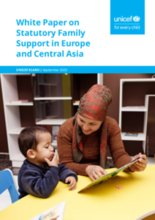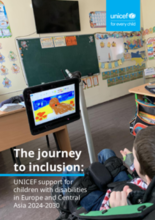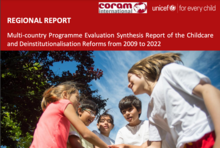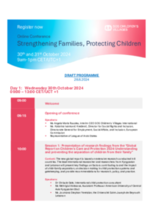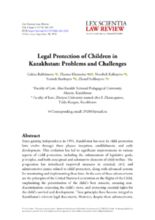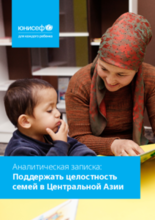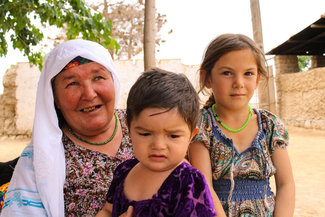

Displaying 1 - 10 of 115
This chapter, in the book Children and Family Social Work, reviews the reform of children’s care systems in Eastern Europe and Central Asia, tracing the historical reliance on large-scale residential institutions under communism and the subsequent shift toward community-based alternatives after the Soviet Union’s collapse. While institutionalization has significantly declined and community services have expanded, challenges remain in funding, workforce development, and preventing family separation while protecting children from harm.
This UNICEF article examines how violent discipline, both physical and psychological, remains widespread across Europe and Central Asia, often occurring in homes or care settings behind closed doors despite legal bans and policy commitments in man
Governments across Europe and Central Asia have advanced child care reforms, yet many children—especially those with disabilities or from marginalized communities—still face risks of separation without strong statutory family support systems in place. This White Paper outlines the essential policies, services, workforce standards, and rights-based approaches countries need to prevent unnecessary separation, strengthen families, and ensure every child can grow up safely in a supportive family environment.
This news article discusses how high-level representatives – including ministers, senior decision-makers, professionals, and children – from across the European Union and the wider Europe and Central Asia region met on October 13, 2025 in Buchares
This summary draws on the work of the UNICEF Europe and Central Asia Regional Office (ECARO) with and for children with disabilities to develop pathways for their full inclusion in their communities.
This report presents the main findings, conclusions, and recommendations of an evaluation of the child care and deinstitutionalisation reforms in seven countries in the Europe and Central Asia Region (Bulgaria, Georgia, Moldova, Montenegro, Northern Macedonia, Serbia and Tajikistan). The report offers valuable insights into the effectiveness of child protection systems and the transition from institutional care to family- and community-based alternatives. It highlights key achievements, lessons learned, and best practices, while also addressing the areas where further improvements are needed to ensure that every child can grow up in a nurturing, safe, and supportive environment.
Panama, Uganda, Sri Lanka and Czech Republic among those newly committing to totally prohibit violence against under-18s.
This study examined case studies highlighting specific issues or exemplary practices in child protection in Kazakhstan, providing a thorough, multidimensional analysis of child rights and protection in the country.
Каждый ребенок имеет право расти в способствующей развитию семейной среде.

